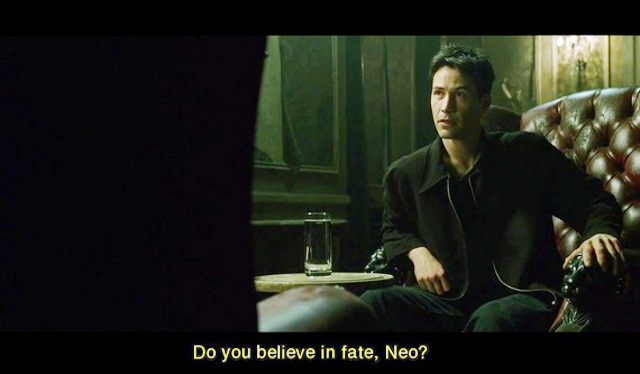We need science more than ever, yet many people find it hard to get accurate information about the scientific method and its achievements. Making things more difficult, their misconceptions about science are often driven by logical fallacies, or errors in deductive reasoning. Here are eight of the most common anti-science fallacies.
Illustration by Tara Jacoby
We’ve never been more dependent on science. At the same time, however, we’ve never been more certain about its ability to help us understand and transform the world. But there are many out there who still distrust science and wish to discredit it at every turn, whether it be anti-vaxxers and climate change denialists, or simply those who wish to preserve their religious or paranormal beliefs.
Trouble is, many of the arguments used to disparage or disprove the findings of science (or even the scientific method itself), are ridden with logical fallacies. Here are eight that fuel anti-science sentiments.
1. False Equivalence
Balanced reporting is important, no question. But that doesn’t mean every single perspective on a contentious issue deserves equal air time or consideration. Such is the fallacy of false equivalence, the assertion that there’s a logical equivalence between two opposing arguments when there is none.

(AP Photo/The Courier-Journal, Matt Stone)
This is a mistake that’s often made when journalists or pundits try to provide a “fair” debate between a scientific and denialist point of view (such as the recent Bill Nye vs Ken Ham evolution/creationism debate). All too often, however, the dissenting side lacks evidence, or presents evidence of poor or dubious quality. Indeed, both sides of an argument are not always equal in terms of quality and evidence.
The Sceptical Raptor blog puts it well:
Just watch a presentation on any of the major news outlets on anthropogenic (human-caused) climate change (ACC). They will have one talking head, usually a scientist who is trying to present nuanced data, usually uncomfortable with public “debate”, going up against a photogenic, possibly a scientist (but in a field totally unrelated to climate studies), who uses logical fallacies, and manipulated data to make a point. And the viewer thinks that half the world’s scientists equally split between both sides of the “debate” regarding ACC. However, the real balance would give us 97 scientists supporting anthropogenic climate change and 2-3 against. Yes, a real high impact factor, extremely well respected journal, the Proceedings of the National Academy of Science, analysed climate change science, and determined that 97-98% of researchers in climate science supported the tenets of human influenced climate change.
The Sceptical Raptor adds that science denialists/sceptics try to create false equivalence through several methods (many of them fallacies of their own), including the claim that science is a democracy, the appeal to authority, conspiracies, and “manufactroversy” (the manufacturing or invention of a controversy).
2. The Appeal to Nature & The Naturalistic Fallacy
Fewer things have done more to undermine scientists and their work than the appeal to nature and the naturalistic fallacy. The former is the belief that what is natural is “good” and “right” and the latter deducing “ought” from “is.” Both have been used to argue that progress in science and technology represents a threat to the natural order of things. It’s a line of argumentation that lauds the inherent wholesomeness of all things natural, while decrying the unhealthiness and unsavoriness of all things unnatural.

At the root of this conviction is the unfounded assumption that humanity’s scientific and technological achievements somehow lie outside of nature, and that our activities in the Universe often serve to disrupt the natural flow or equilibria of things. This sentiment has contributed to many concerns and outright prohibitions, including those in fundamental biological research, genomics, while also contributing to the rise of pseudo-scientific ideas like Social Darwinism.
Philosopher George E. Moore cogently argued that it’s an error to try to define the concept of “good” in terms of some natural property. David Hume pointed out that it’s a leap from is to ought. Further, it’s wrong to distance humanity and our activities from other aspects of the Universe. We are, after all, working in the Universe according to its laws, and never in violation of it; what we do and what we produce within it is just as natural as anything. (Image: Princess Mononoke)
3. Observation Selection
Many critics of science deliberately (and sometimes unconsciously) select and share information that serves to undermine specific proclamations of science, while ignoring information that works to support credible hypotheses.

For example: “My grandfather smoked and ate poorly his whole life, and he never got sick” (which happens to include another fallacy: the statistics of small numbers). Or pointing out favourable circumstances while ignoring or dismissing the unfavorable (or vice-versa), such as noticing the winners at gambling casinos while ignoring the losers, or complaining that crime is on the rise after watching the nightly news, but ignoring crime statistics showing declining rates (a similar thing can be said about our individual odds of being killed in a terrorist attack). (Photo: How to Live Forever)
4. Appeal to Faith
I’m not interested in the evidence — I just have faith that what I believe is true.
Arguing about God is useless because God is beyond scientific reasons or arguments.
I refuse to believe in all this global warming doom-and-gloom. I have faith that God wouldn’t let such a bad thing happen to us.
Sound familiar? These are common refrains repeated by people who have appealed to their faith when making an argument — a fallacy in which religious convictions are conflated with reason and evidence. But while many of these people believe they’re acting rationally, the truth is of the matter is that the choice to believe in something is no substitute for science.
Related: The 7 Most Intriguing Philosophical Arguments for the Existence of God
As philosopher George M. Felis has noted, appealing to faith is not just a logical error, it’s also a moral failing:
The reason this is so important isn’t simply that people who embrace faith will have ill-formed beliefs. Reason is not normative solely in the minimal sense that there are strictures within which it must operate or it is no longer reason. There is an ethical component to reason as well, because one’s beliefs are intimately connected to one’s actions. Some of one’s beliefs are themselves normative — beliefs about what is good and right, about whose life is valuable and why and in what manner (see abortion and euthanasia debates). And factual beliefs are also important, since how we understand the world in which we are acting shapes our actions every bit as much as our values and ends.
If one gives up reason in the formation of some of one’s beliefs, one gives up the only access to truth we have. Humans don’t have any perceptual capacity to immediately discern truth, the way we immediately discern colour and shape (if the lighting is good and our eyesight is in good order). The closest we can get is to justify our beliefs. Faith is not justification, it is the suspension of all standards for justification. Faith declares that some beliefs — these important ones right at the center of my world-view that shape how I see many other things — need not be justified at all.
5. God of the Gaps
Science does not have all the answers, nor does it pretend to. We still don’t know how consciousness works, we don’t know what instigated the Big Bang, and there are still holes in our understanding of how certain traits emerged via natural selection. That’s not to say these are intractable problems; it’s quite possible we’ll solve these some day. In the meantime, it’s important to gather evidence, posit hypotheses, and assume the naturalistic paradigm (i.e. all phenomenon can be explained without having to invoke the actions of a divine force).

Unfortunately, however, there is a tendency among those who wish to discredit science to fill our knowledge gaps with supernatural and metaphysical explanations. For example, creationists often argue that natural selection cannot adequately account for the diversity, complexity (or “irreducible complexity), and apparent design of life on Earth. Similarly, neurological phenomenon, such as near-death-experiences or hallucinatory experiences such as remote presence, are often assigned supernatural explanations when simpler explanations are more likely and plausible.
As mathematician Charles A. Coulson wrote in 1955, “There is no ‘God of the gaps’ to take over at those strategic places where science fails; and the reason is that gaps of this sort have the unpreventable habit of shrinking,” adding that “Either God is in the whole of Nature, with no gaps, or He’s not there at all.”
6. Appeal to Consequences
Appealing to consequences can be seen as a kind of precautionary principle, an injunction to not engage in activities or scientific endeavours that raise threats of harm (or undesirable outcomes) to human health or the environment on account of a unforeseen series of cascading events (which is related to another fallacy, the slippery slope). In many cases, however, anti-science folks intertwine the boundaries between their disputes of a particular scientific line of inquiry with alleged philosophical and moral consequences.
For example, there’s a fear that belief in evolution will lead to genocide, or that it will lead to the opinion that humans are just another animal in the forest (i.e. the negation of human exceptionalism). Another common concern is that atheism/materialism will lead to an unfulfilled, immoral life.

Yet another good example comes from Neo in The Matrix when he’s asked if he believes in fate, to which he answers no. But when asked why, he replies, “I don’t like the thought that I’m not in control.” In this example, Neo is not appealing to evidence, but rather the unpleasantness of believing in fate.
Clearly, some avenues of scientific inquiry are more dangerous than others. The recent gain-of-function debate is a good example. But it’s not the scientific method or scientists that are at fault, but rather how we adapt to newfound knowledge.
7. Withholding of Consent
It’s just a theory.
No, sometimes it’s not just a theory. OK, sure, scientific principles like natural selection and general relativity are theories, but there comes a point when explanations or models become so instructive and so damned useful that they graduate to the level of axioms — a statement or proposition that’s so established, accepted, or self-evidently true that we should refrain from withholding our consent, because to do otherwise would be simply unreasonable.

(Darwin’s finches via Gould)
That’s not to suggest we should abandon scepticism or seek to improve upon our axioms. But it’s important to recognise useful “theories” when we see them and not just discredit them when it’s deemed inconvenient to do so.
Related: Why Agnosticism Probably Doesn’t Mean What You Think It Means
8. Playing God
Think of this as the nonsecular corollary to the naturalistic fallacy. Though not a formal logical fallacy, it is an error in thinking — the idea that humanity should not tread on what is traditionally God’s domain, and that by doing so, we’re being hubristic, reckless, and irreverent.

The concern is that we’re engaging in activities that lie beyond our understanding and control and that we could irrevocably mess things up. We even risk enraging God in the process. Injunctions against “playing God” are commonly directed at such things as birth control, abortion, voluntary euthanasia, genetic engineering, and embryonic stem cell harvesting. In future it could apply to such things as radical life extension and geoengineering.
But it has often been said, if we don’t play God, then who will? Such was the central takeaway of the European Enlightenment and the rise of secular humanism. Working under the assumption that God does not exist (or at the very least, does not intervene in our affairs), a popular opinion emerged stating that humanity has an obligation to take matters into its own hands if it is to truly understand the world and make it a better place. And by applying reason and the scientific method, humanity stands a much better chance of success than idly waiting for a supernatural force that doesn’t appear to exist or care one whit about us.
